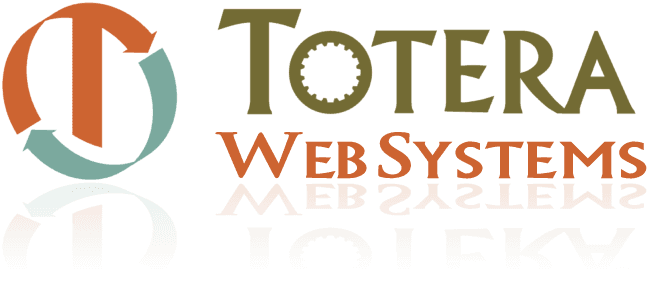Experience
Experience
I am clinically trained to work with children ages 3-18, adults, couples, and families. As a Washington State Certified Child Mental Health Specialist I have received extensive clinical expertise and training working with children and families. This Certification was received while employed at Discovery Behavioral Health (formerly Jefferson Mental Health) between 1999-2004. I began being trained and practicing as a professional counselor in 1994, received a Masters in Counseling from Antioch University, (Seattle, WA) between 1994-1998, and became a Licensed Mental Health Counselor in 2001. My clinical background also allows me to work in a supervisory role with both graduate students being trained towards licensure, and with agencies seeking an independent consultant . I have worked in multiple agencies in the Seattle area and on the Olympic Peninsula where I was trained as a therapist to work with traumatized adults and children who experienced sexual assault and domestic violence. Please refer to my disclosure statement
for previous job training opportunities and experience.
Working with Individuals
How I might work with you typically involves talking about emotional experiences—past and present—that are sources of concern or anxiety. I may incorporate Mindfulness Practice in my work with you. This involves a slowing down of our instinctive automatic responses and paying closer attention to our bodies’ soft signs and signals of distress. We will practice working towards greater states of awareness in our day-to-day activities in therapy.
It is quite natural to experience bouts of anger, depression, or hopelessness during the therapy process. This typically means change is happening, and change can feel uncomfortable. It is during these times that I encourage clients to keep coming to therapy, in spite of the painful feelings. These feelings often subside in time and can pave the way for increased resilience, new behaviors and emotional responses.
Working with Couples
Couples counseling is a collaborative process where two individuals share mutually agreeable goals. I provide a variety of proactive, solution-based couples therapy including:
- Pre-marriage counseling
- Parenting mentoring
- Post divorce/separation negotiation
I am experienced working with couples with challenges such as:
- History of infidelity
- Breaches of trust
- Strains in communication
- Threat of separation
- Power struggles
I help couples focus on sharing difficult feelings with less defensiveness. We work toward building greater emotional intimacy through trusting communication.
Working with Children, Teens and Families
I consider the work I do with kids and families influenced by Attachment and Family Systems Theories. I focus on establishing rapport and trust with kids, and help families enhance and work towards a more positive relationship with their child. I offer many forms of experiential play therapy when working with children. I attempt to form and build a connection with children; once trust is established, lasting change can happen in therapy. My goal is to help children voice their feelings in their own unique way, and to help family members understand and pay close attention to feelings. Family therapy can help increase healthy communication among all family members.
Mine is a strength-based perspective where kids are viewed as strong and resilient in families; they have the innate potential to heal even from the most challenging of life circumstances. It is my fundamental belief that children are striving to get basic needs met in families and might use certain (sometimes) challenging behaviors and strategies to do so. Typically, underneath the underlying symptom of defiance, anger, impulsiveness, depression, or panic, is a more vulnerable feeling of fearfulness, hurt, and worry that drives it.
When working with your child I may ask to involve different family members at specific junctures of my work with them. I will ask that parents/caregivers take an active role in their child’s therapy by coming to appointments at regularly scheduled intervals in our work together. In divorced/separated families, I will ask that each parent come in separately to give me input, offer expertise, and work on mutual parenting goals.
Working with Teens
Therapy with teens is most effective when regarded as a collaboration where kids believe they have some say in their destiny. All kids over the age of 13 can consent to their own medical treatment/therapy. I will ask for teenagers permission and “buy in” to involve family members in their therapy, but do not mandate it. I ask kids over 13 to sign a release of information so that I can talk to family members about how the counseling is going. The best way to hear how your child is doing in therapy is to have a joint session where we discuss our progress together. It can sometimes take time for teens to feel comfortable doing joint family sessions. I ask for parents patience during times where kids are learning how to speak for themselves.
Parents can expect to hear a global assessment of their child’s progress in therapy at periodic intervals. You are always welcome to share your thoughts, observations, and concerns with me in between sessions. I welcome and encourage your expertise and input.
I preserve a client’s confidentiality and will negotiate with teens beforehand what content is shared/disclosed to the parent(s). I never go behind an adolescent’s back and only give parents feedback about the details of therapy unless I have discussed it with the teen first. There should be no surprises in therapy.
I am obligated by law to protect your child’s safety. If your son/daughter indicates that they intend to harm themselves or others or has been hurt/harmed in the past, I am mandated to immediately inform parents and might involve a County Designated Mental Health Professional to determine your child’s safety. I always let kids know right away when I need to take action to inform others when there is imminent risk involved.
My work with teens and young adults mostly involves talk therapy, however it can also be helpful to involve journaling, collage, board games, and mindfulness training to help adolescents understand and get familiar with feelings.
Mindful Counseling
(360) 379-4857
1135 Lawrence Street
Port Townsend, WA 98368
Port Townsend, WA 98368
Send a secure message
Thank you for your message.
I will get back to you as soon as possible.
Oops, there was an error sending your message.
Please try again later
Please try again later
Website by Totera
Copyright ©1998-2024 Totera Inc. All Rights Reserved. Port Townsend /Seattle / San Francisco Privacy Terms of Use


